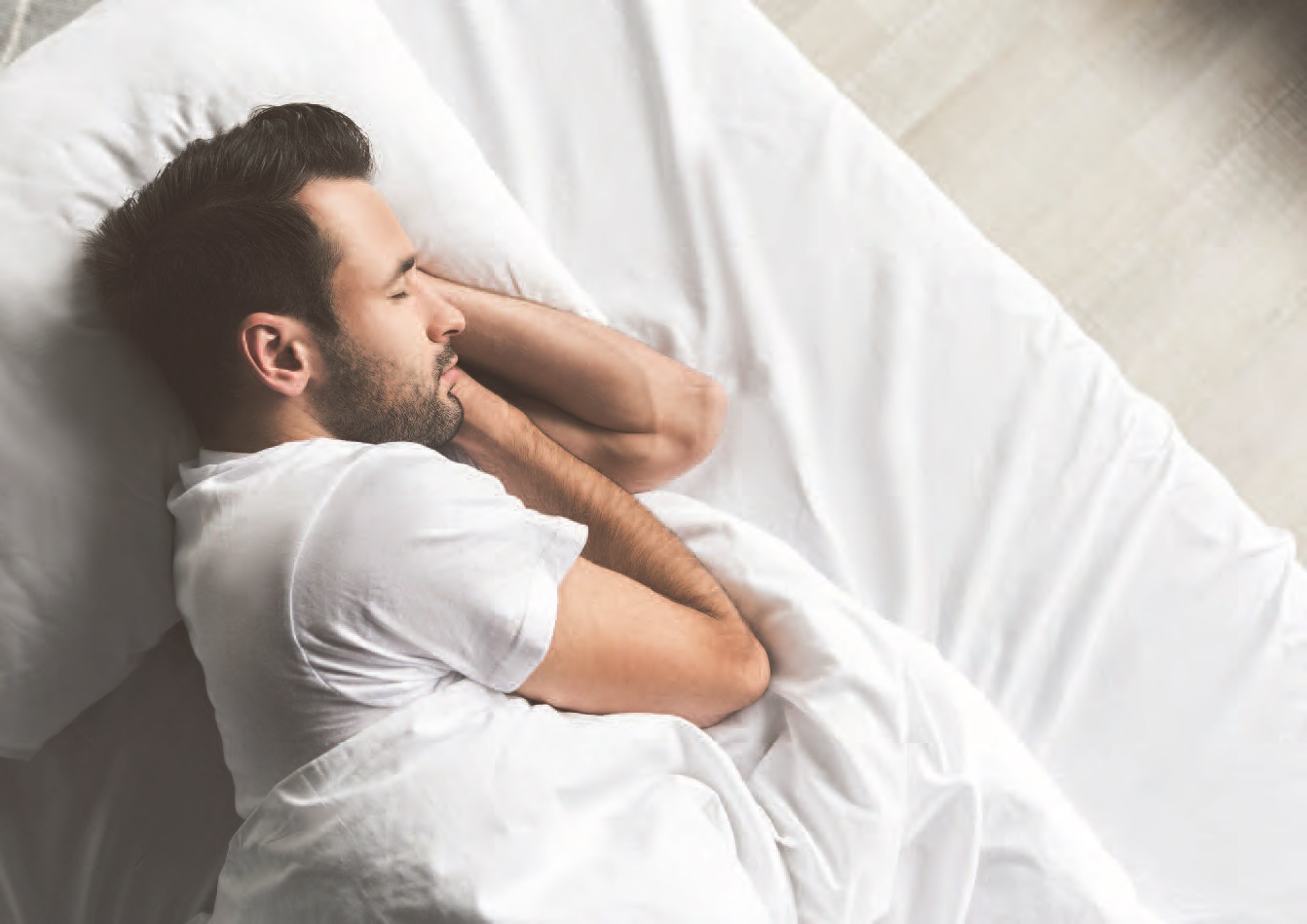Trinitas puts the science of “shut-eye” in play.
By Christine Gibbs
Can you recall the moment when you first heard the term sleep hygiene? For those of us who suffer from some form of sleep disorder, the concept couldn’t have come soon enough. From insomnia to sleep apnea, from snoring problems to nodding off at work (or behind the wheel!), the dream of a good night’s sleep is just that—a dream—for upwards of 50 million Americans. Indeed, so much attention has been placed on getting enough sleep in our stress-filled lives that Sleep Medicine is now a recognized medical specialty devoted to the diagnosis and therapy of sleep disorders. For the record, “sleep hygiene” refers to those practices, habits and routines that contribute to a sound sleep.
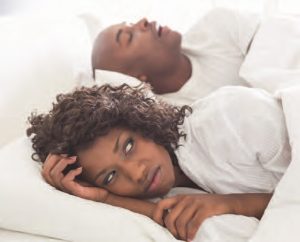 According to the American Sleep Association (ASA), nearly one in 10 adults in this country suffers from sleep apnea. Around half have a snoring problem. Two in five adults fall asleep during the day when they should be awake, with an alarmingly high 5% reporting that they do so while driving at least once a month. The ASA also attributes between 3% and 5% of obesity to sleep deprivation. Not surprisingly, insomnia tops the chart of sleep issues.
According to the American Sleep Association (ASA), nearly one in 10 adults in this country suffers from sleep apnea. Around half have a snoring problem. Two in five adults fall asleep during the day when they should be awake, with an alarmingly high 5% reporting that they do so while driving at least once a month. The ASA also attributes between 3% and 5% of obesity to sleep deprivation. Not surprisingly, insomnia tops the chart of sleep issues.
This would explain the growth of the Comprehensive Sleep Disorders Center at Trinitas, which began with a single bed in a single room. It has now expanded six-fold, with four in-hospital beds at the Elizabeth campus and two more located remotely at the Homewood Suites by Hilton in Cranford. The center is accredited by the American Academy of Sleep Medicine.
Dr. Vipin Garg, who has been the program’s director since 2004, focuses on ensuring that everything in the Trinitas Center is as conducive to comfort, personalization, and privacy as possible. This includes ensuite bathrooms, temperature control, TVs, books, and even “get acquainted” visits prior to the first session. He adds that some patients prefer the hotel ambiance to that of the hospital, finding it to be more relaxing and sleep-inducing, adding “we try to make the center less like a hospital and more like a hotel.” Regardless of the venue, the key for all patients, he says, is to relax beforehand.
SERIOUS BUSINESS
Dr. Garg emphasizes the potential seriousness of many underlying causes of sleep problems. “Some disorders such as sleep apnea and insomnia have high mortality rates,” he says. “Even individuals who go to bed late and get up late have a 10% higher mortality rate than average. And of course, sleep deprivation can have disastrous results in the workplace due to diminished cognition and judgment.”
Some of the issues treatable at the center include sleep apnea, insomnia, restless leg syndrome, snoring, and narcolepsy. No issue goes untreated, however, even the non-life threatening ones, such as oversleeping or teeth grinding.
“We are open 24–7, day and night,” he says. “In fact, sometimes we are as much a ‘wake-up’ center as a sleep center.”
Indeed, at times, the Comprehensive Sleep Disorders Center is so successful at inducing sleep that it becomes the only place where patients believe they can get a good night’s rest. In such cases, the patient has to be weaned off dependence on sessions at the center by analyzing the reasons for the preference and recommending reasonable changes to the home environment to make it more sleep-friendly.
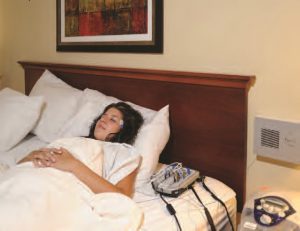 The Sleep Disorders Center is equipped with all state-of-the-art diagnostic equipment to monitor heart, breathing and muscle activity, as well as specialized equipment such as the BiPAP machine, a non-invasive form of therapy for patients suffering from sleep apnea. Videos are an important tool in sleep analysis and are regularly reviewed with patients to help them understand the source of their sleeplessness.
The Sleep Disorders Center is equipped with all state-of-the-art diagnostic equipment to monitor heart, breathing and muscle activity, as well as specialized equipment such as the BiPAP machine, a non-invasive form of therapy for patients suffering from sleep apnea. Videos are an important tool in sleep analysis and are regularly reviewed with patients to help them understand the source of their sleeplessness.
Currently, a staff of 16 mans the Comprehensive Sleep Disorders Center, a 2:1 staff-to-patient ratio. Some are respiratory therapists and others are board-certified polysomnographers. One-on-one supervision is provided to accommodate special needs. On average, 30 patients are seen each week. Males with sleep apnea problems account for the majority; insomniacs are predominantly female. Annually, the center treats about 1,200 patients.
According to Nancy Gonzalez, Chief Technologist, the Comprehensive Sleep Disorders Center is especially proud of its care and support of young sleep-deprived patients. Pediatricians from the surrounding counties frequently refer patients to Trinitas for diagnosis and treatment. Children ranging in age from six months to their teens often present with physical disorders, such as enlarged tonsils/adenoids or sleep apnea. Patients with Down’s syndrome and ADHD have also been treated. In fact, in contrast to most adults, the center’s clinical case studies have revealed that children who are not getting enough sleep at night typically become overactive and agitated during the day, with the unfortunate result that many are misdiagnosed with ADHD.
Along with the very young, many seniors seek solutions at the center for their age-related sleep issues. In general, all patients at the center respond positively to the nurturing staff and comfortable environment. Perhaps the best testament to its reputation is that patients who were treated 10 or 15 years ago, but who suffer a relapse, have confidence enough to return for retreatment.
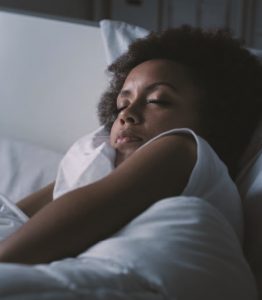
DOCTOR’S ORDERS
“Sleep disorders of all kinds and of varying degrees are very curable and reversible,” Dr. Garg states. In fact, this positive prognosis was what attracted him to sleep medicine more than 15 years ago. He sums up the center’s treatment protocol as comparable to the recommendations of most healthy diet and exercise programs. Sleep aids are always reserved as a last resort—he indicates that many of the newest drugs are non-addictive and of significant therapeutic value when carefully prescribed and monitored by a physician. As to specific bedtime rituals and requisites, Dr. Garg offers the following suggestions:
- Leave enough time for 7 to 9 hours of sleep.
- Go to bed at the same hour each night.
- Avoid all caffeine or alcohol.
- Keep the room dark and noise-free without distractions such as TV, computer, etc.
- Be sure to visit the bathroom before going to bed.
- Try some deep breathing exercises (but no aerobic exertion for four hours prior to bedtime).
The goal for all patients is to analyze their sleep behavior in order to develop natural and restorative sleep patterns that will improve overall health and add quality to their personal lives.
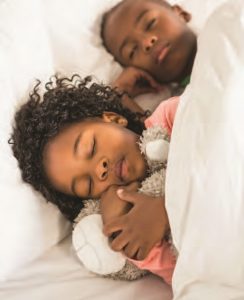
HOW MUCH IS ENOUGH?
The American Sleep Association has issued the following guidelines for a healthy night’s sleep…
Adult • 7 to 9 hours
Teenager • 8 to 10 hours
Child (6 – 12) • 9 to 12 hours
Child (3 – 5) • 10 to 13 hours*
Child (1 – 2) • 11 to 14 hours*
Infant • 12 to 16 hours*
What’s the right amount of sleep for seniors? It all depends.
* including nap
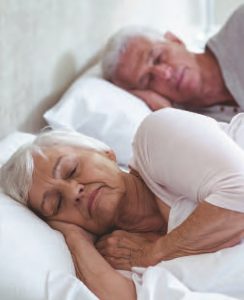
SENIOR SLEEPERS
Sleep recommendations for seniors are more difficult to generalize since aging often brings on more physical issues, such as restless leg syndrome, acid reflux, and bladder problems that can affect sleep patterns. It is a common misconception that seniors require less sleep; rather, ideal sleep needs remain relatively constant throughout adulthood (with some person-to-person adjustments). Older adults on the whole often have a harder time with their personal sleep architecture—i.e., falling asleep and/or staying asleep. The recommended amount of sleep for seniors, however, remains the same as for most adults: 7 to 9 hours, even when interrupted.
THESE DREAMS
Do dreams come into play in the analysis of sleep disorders? From a scientific perspective, dream content does not determine the quality of sleep —although it can affect the patient’s condition upon waking. Narcoleptics are among the most frequent “day dreamers.” Whether the dreams are sweet or nightmarish, the physical aspects of the sleep event are no different, even though the acting out behavior upon awakening can be dramatically different (for example when based on traumatic real-life events as with many PTSD cases).
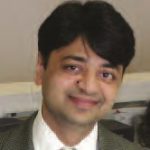
Vipin Garg, MD
Director, Trinitas Comprehensive Sleep Disorders Center
908.994.8880

